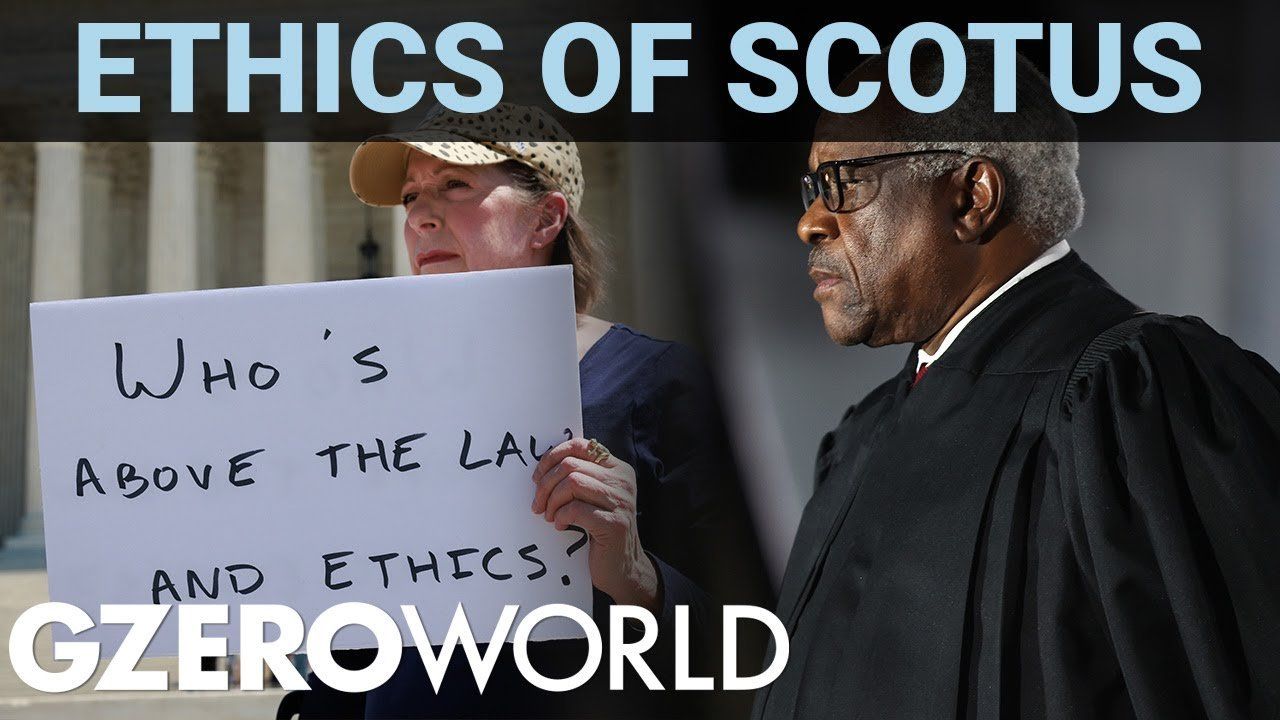GZERO World Clips
Why Clarence Thomas has eroded trust in the US Supreme Court

Why Clarence Thomas has eroded trust in the US Supreme Court | GZERO Media

Few Supreme Court Justices have tested the Court's ethical limits like Justice Clarence Thomas, says this week's GZERO World guest, Yale Law School legal expert Emily Bazelon. And that's because, for centuries, Justices have been reluctant to test the boundaries of an ethical system that has few limits. "Federal judges and lower courts are subject to ethical codes," Bazelon explains, "but not the Supreme Court justices themselves."
As a result, the Court has experienced some of its lowest public approval ratings in history, this past year. Some of that discontent, of course, can be traced to the Court's rightward swing under its conservative supermajority. But for a branch of the government that relies heavily on public trust to ensure that its rulings are respected and carried out, the decline in popular support is cause for concern.
"People do not have faith that this is a non-political institution, and that's what courts are supposed to be, at least in theory. They're supposed to be doing something called law, that's separate from politics."
Tune into GZERO World with Ian Bremmer on US public television stations nationwide. Check local listings.
100 million: The number of people expected to watch the Super Bowl halftime performance with Bad Bunny, the Puerto Rican superstar and newly minted Album of the Year winner at the Grammys.
Think you know what's going on around the world? Here's your chance to prove it.
An imminent US airstrike on iran is not only possible, it's probable.
Americans are moving less — and renting more. Cooling migration and rising vacancy rates, especially across the Sunbelt, have flattened rent growth and given renters new leverage. For many lower-income households, that relief is beginning to show up in discretionary spending. Explore what's changing in US housing by subscribing to Bank of America Institute.